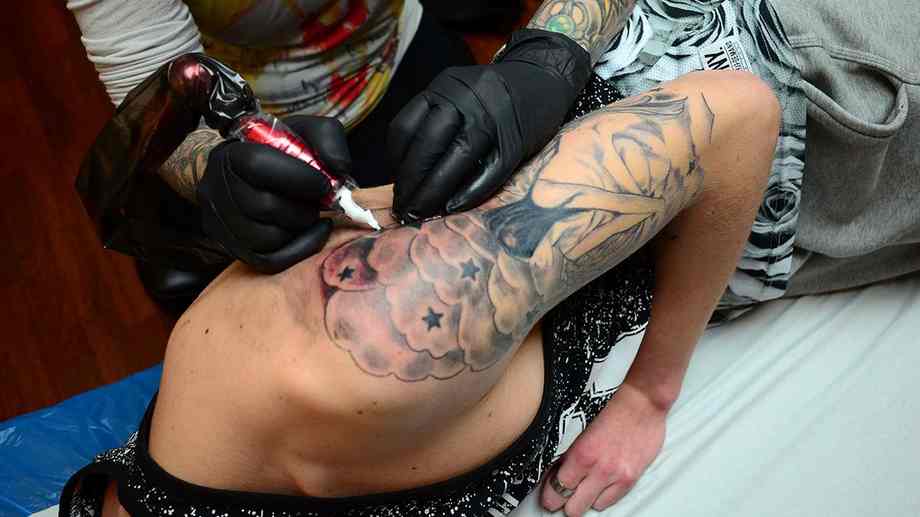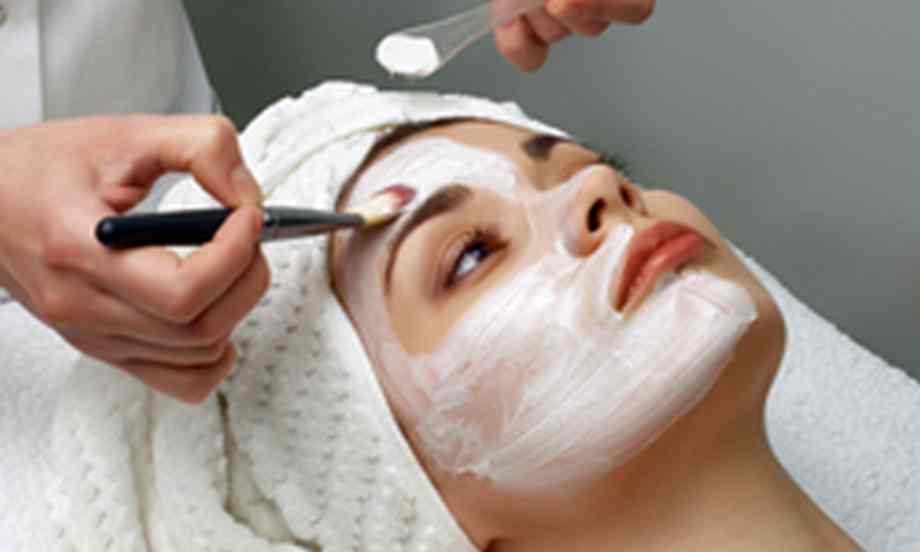For one thing that solely reaches the skinny higher layers of our pores and skin, pigmentation can have a hefty affect on the best way others see us — and the best way we see ourselves. An individual’s pores and skin shade is, in spite of everything, maybe the very very first thing you discover about him, since pores and skin is our largest and most seen organ. And although the times when a specific complexion was the final word signal of magnificence could also be behind us, your pores and skin tone can nonetheless say loads about you.
Pores and skin will get its shade primarily from melanin, a pigment produced by melanocyte cells within the pores and skin. The darker the pores and skin, the extra melanin it accommodates [source: MedicineNet]. Freckles and wonder marks likewise point out a better focus of the pigment in sure areas.
Melanin additionally performs one other very important operate: It protects the pores and skin towards dangerous UV rays. Solar publicity, in actual fact, stimulates melanin manufacturing, but when your pores and skin is darkish to start with, you might be much less more likely to burn shortly — that does not imply you will not burn in any respect, although, so brown-skinned folks ought to nonetheless take precautions earlier than they arrive into contact with UV rays.
Even when your melanin manufacturing spikes, the solar can nonetheless hurt you in some ways. Melanoma is essentially the most lethal pores and skin illness brought on by solar publicity, however there are different severe ones, as nicely. From a beauty standpoint, spending an excessive amount of time within the solar may additionally depart you with completely blotchy pores and skin that’s lighter or darker in some areas than the pores and skin round it [source: Your Skin Doctor].
Learn on to search out out precisely how melanin colours your pores and skin.
Contents
- Anatomy of Pores and skin Pigmentation
- Pores and skin Pigmentation Issues
- Solar Publicity and Pores and skin Pigmentation
- Solar Publicity and Pigmentation Circumstances
Anatomy of Pores and skin Pigmentation
Pores and skin is an incredible organ. It covers the entire physique and is able to regeneration. The typical grownup has 8 kilos (3.6 kilograms) and 22 sq. toes (2 sq. meters) of pores and skin [source: National Geographic]. Along with its aesthetic position, pores and skin features as a temperature regulator, a defend towards micro organism and water loss, a storage heart for water and fats, and it permits us to really feel the world round us.
Whilst you could use the phrases "thick-skinned" and "thin-skinned" to consult with an individual’s temperament, it is also true that all of us have various depths of pores and skin on completely different components of our our bodies. The eyelids are the thinnest pores and skin we possess, and due to their respective features, the soles of the toes and the palms of the arms are thick.
Pores and skin pigmentation resides within the dermis, or the skinny outer section of the three layers that make up the pores and skin. The dermis alone is made up of three tiny sub-layers. Pigment doesn’t attain the dermis, the center layer of pores and skin [source: University of Maryland Medical Center].
You get tan when your dermis reacts to the ultraviolet (UV) rays of the solar. Your melanocytes get a message out of your pores and skin that claims, "Hey, potential harm right here. Defend me!" Melanocytes then produce extra melanin, which protects pores and skin from solar harm. Sadly, the physique’s pure safety will not be sufficient to utterly stop harm and illness brought on by the robust rays of the solar.
Proceed to the subsequent web page to find out about issues that may go fallacious along with your pores and skin pigmentation.
Phrases Starting With "Mela"
Many phrases associated to pores and skin pigmentation start with the prefix "mela." Melanin, melanocyte and melanoma are three you may hear loads. All of those phrases come from the Greek phrase "melas" or "melonas," which implies black. The "in" in melanin refers to a chemical substance, so its literal which means is a chemical that makes you black, or darkish. "Cyte" means cell, so a black cell is melanocyte, and "oma" means tumor, which makes melanoma a tumor containing melanin [source: Webster’s Online Dictionary].
Pores and skin Pigmentation Issues
Issues can go awry with virtually any facet of the human physique, however when one thing occurs to your pores and skin, it may be very noticeable. On the brilliant aspect, the beauty change folks see is commonly the worst symptom of pores and skin pigmentation issues.
Pores and skin pigmentation issues could make your pores and skin both darker or lighter. Lightening is known as hypopigmentation and darkening is known as hyperpigmentation. Merely having a lightweight or darkish patch doesn’t mechanically sign an issue, however it might probably.
White bunnies which have pink eyes, generally known as albinos, technically have a pigmentation dysfunction. Albinos wouldn’t have any melanin and, due to this fact, wouldn’t have any pigment of their pores and skin, eyes or hair. People who’re albinos have very gentle pores and skin due to the shortage of melanin. They could even have very gentle hair and light-weight eyes. Albinism is an inherited situation [source: Cleveland Clinic]. Vitiligo is one other hypopigmentation dysfunction. With this situation, the physique destroys its melanocytes or they fail to operate correctly, so an individual can’t produce melanin, and their pores and skin loses its shade. This doesn’t occur in a single day, nor does it occur evenly all through the physique [source: American Vitiligo Research Foundation].
A hyperpigmentation situation referred to as melasma (black spot) is usually known as "the masks of being pregnant," as a result of it generally seems on the faces of pregnant girls. In that case, it is the hormone imbalances that coincide with being pregnant which trigger the situation. Girls who’re going by means of menopause or utilizing hormone-based contraception strategies may discover patches of their pores and skin — particularly pores and skin that’s uncovered to the solar — changing into darker. Melasma could go away by itself, but it surely will also be handled with prescription lotions or over-the-counter skincare merchandise if it persists.
You’ll have additionally seen older individuals who have darkened bands of pores and skin round their necks or on their cheeks. The medical identify for this situation is poikiloderma of Civatte, however most individuals simply name it solar growing older — which is suitable as a result of it’s brought on by staying within the solar an excessive amount of. More often than not, it doesn’t trigger any discomfort.
With any of those pigmentation-affecting circumstances, utilizing sunscreen and limiting solar publicity is essential to forestall additional harm.
Many scientists consider pores and skin shade is a mirrored image of how a lot solar publicity your ancestors received of their native areas. Learn on to study extra about this concept and others associated to pores and skin shade.
Issues and Pores and skin of Coloration
Darkish spots and uneven pores and skin tone are sometimes related to growing older (therefore the time period "age spots"), however for these with darkish pores and skin, these adjustments can occur at a younger age, too. You need to see a dermatologist when you discover any change or discoloration of your pores and skin [source: American Academy of Dermatology].
Solar Publicity and Pores and skin Pigmentation
Though pores and skin shade is commonly categorized as black, pink, yellow or white, no person’s pores and skin is actually any of those colours. Our pores and skin shade lies someplace on a continuum of shades from very darkish brown to virtually pink. Pores and skin shade adjustments all through our lives due to solar publicity and different components.
Researchers consider a transparent correlation exists between the place your ancestors lived and pores and skin shade. In sunnier, hotter climates, darker pores and skin is extra advantageous as a result of it protects the physique from UV rays. As folks migrated to colder, much less sunny environments, darkish pores and skin prevented sufficient vitamin D manufacturing, which in flip led to rickets and loss of life. Lighter-skinned folks had been capable of produce extra vitamin D and reside on to breed [source: Dreifus]. Darker-skinned individuals who now reside in colder climates are nonetheless prone to rickets and, some scientists consider, different illnesses as a result of they aren’t getting sufficient vitamin D.
Deliberate solar publicity could result in that evenly bronzed look frequent in celebrities, however it might probably additionally result in a sprig of freckles throughout the bridge of your nostril or throughout your face. It is no coincidence that redheads, sometimes bearers of the fairest pores and skin of all of them, are susceptible to freckles since their pores and skin may be very delicate to the solar’s rays.
Many individuals bask within the sunshine to not get vitamin D, however to get a tan. To learn concerning the potential downsides of that so-called wholesome glow, transfer on to the subsequent web page.
Vitamin D, Solar Publicity, Darkish Pores and skin and Chilly Local weather
Most individuals can get their really useful day by day allowance of vitamin D with publicity to daylight. Nonetheless, when you reside anyplace north of Boston’s latitude, UV rays is not going to be robust sufficient within the winter to serve that function. If you’re utilizing sunscreen with an SPF of 8 or greater, you might be blocking the UV rays, and thus the manufacturing of vitamin D [source: National Institutes of Health’s Office of Dietary Supplements].
Natives of the Arctic Circle — who are sometimes referred to as Eskimos, however are extra particularly generally known as the Inupiat and the Yupiks of Alaska, the Canadian Inuit and Inuvialuit, the Inuit Greenlanders and the Siberian Yupiks — wouldn’t have very pale pores and skin. The explanation could also be that their conventional food plan, which incorporates loads of cold-water fish and sea mammals, is wealthy in vitamin D [source: Gadsby].
Learn Extra
Solar Publicity and Pigmentation Circumstances
It’s normal data that an excessive amount of solar publicity will not be a great factor. Nobody desires to finish up with leathery, snake-like pores and skin. However that is just one aspect impact of letting UV rays assault your physique.
The three commonest types of pores and skin most cancers may be traced to solar harm, and all three are on the rise. Basal cell carcinoma is the commonest nonmelanoma pores and skin most cancers and essentially the most treatable kind, but when it is left untreated too lengthy, it might probably trigger harm to close by tissue and bone. Basal cell can also be the most definitely pores and skin most cancers to recur. Squamous cell carcinoma is second commonest type of nonmelanoma pores and skin most cancers, and it’s utterly curable when caught and handled. Melanoma, essentially the most harmful of the pores and skin cancers, impacts the melanocytes. It, too, is curable when caught early, however may be lethal when left untreated [source: Mayo Clinic].
Different pores and skin pigmentation circumstances are extra beauty in nature. Age spots, also referred to as photo voltaic lentigos, may be traced on to solar publicity. Whereas they aren’t harmful in themselves, age spots can point out a threat of pores and skin most cancers. Tough, scaly, discolored patches of pores and skin that do not go away could also be actinic keratoses, or photo voltaic keratoses. Because the identify implies, additionally they come up from publicity to an excessive amount of solar. Generally, these patches can evolve into squamous cell carcinoma.
Pores and skin pigmentation could also be an adaptation to a previous migration, however in a approach, people should proceed to adapt — this time by ensuring we soak up solely the suitable quantity of daylight, no matter our pores and skin shade.
For extra details about solar publicity and your pores and skin, learn on to the next web page.
Blame Coco Chanel
Having a suntan was as soon as thought of low class. Working folks needed to be exterior laboring within the solar, however the creamy complexioned higher class did no such factor. Then within the early Twenties, French designer Coco Chanel went on a cruise and got here again tan. Quickly, girls everywhere in the world had been copying her, and being tan turned the style [source: Mighall].


